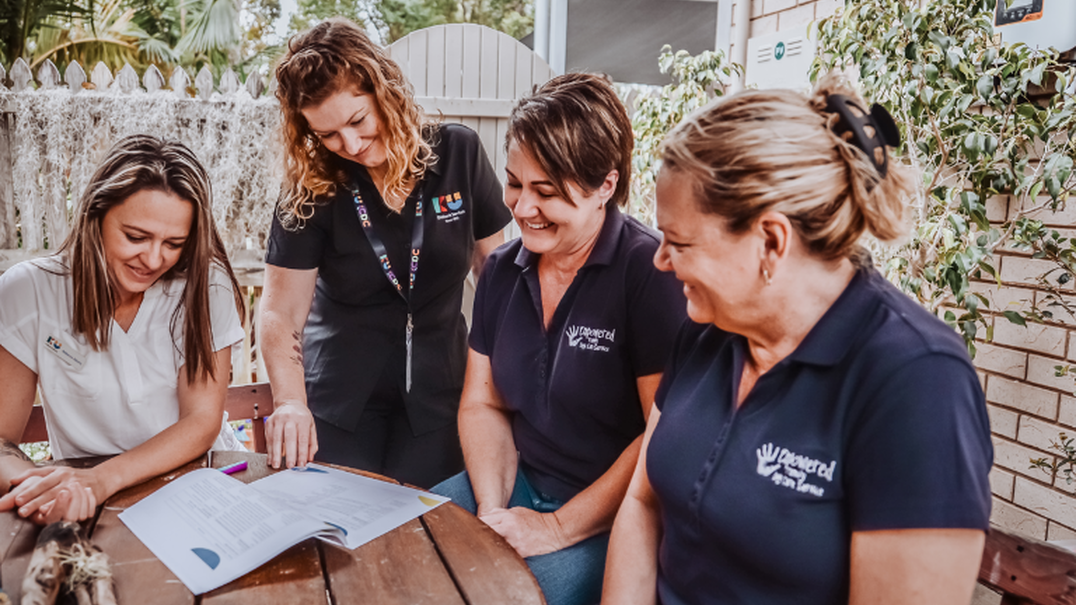Relationships are key: Engaging with Family Day Care
Read how Empowered Family Day Care worked collaboratively with Inclusion Support QLD to engage in critical reflection to support the inclusion of all children.


Educators are in a unique position to play a critical role in creating a safe environment for children who have experienced trauma. A Family Day Care Scheme has found a way forward by engaging in an Innovative Solutions Project to help children and educators cope with trauma in culturally responsive ways.
Educators from Cairns Regional Family Day Care (FDC) noticed that the children in their care were becoming increasingly withdrawn and unsettled. In conversations with their families, they identified that many were struggling with unresolved grief and trauma as refugees. With the added stress of COVID-19 outbreaks, job losses and family breakdown, families and their children were experiencing significant impacts to their wellbeing. Whilst educators understood that early exposure to trauma disrupts the development of emotional regulation, empathy, and social relationships, they lacked a deeper understanding of trauma and its effect on children’s development.
Service Coordinator, Iris Mitchell, met with her Inclusion Professional, to explore all possible support options. An Innovative Solutions project was developed with Complex Care that included individual face-to-face mentoring sessions and whole team professional conversations. As many of the educators have English as a second language, the professional conversations were held with the support of a translator who translated English to Nepali to ensure all educators understood the content and were able to participate, ask questions and engage in reflection.
Complex Care Consultant Therapist and Lead Trainer, Leland Pasion provided educators with an in-depth knowledge on trauma and helped them to identify their own triggers, trauma responses and self-care needs. He used a competence-oriented framework to support educators to respond to children in ways that made them feel safe, trust others, problem-solve, and co-regulate.
Iris was delighted by the willingness of the educators to communicate openly during the professional conversations. Those educators who experienced a language barrier had typically disengaged in the past however, with the support of the translator, they were asking a myriad of questions and sharing their experiences and perspectives. The translator not only increased the engagement and participation of the educators but also ensured the content delivered was tailored to their unique cultural needs. One educator stated that she “feels really confident to express my feelings and put boundaries in place now and not keep the stress in my mind”.
Today, educators feel confident in their capacity to recognise trauma, identify their responses to this and to create safe environments for children. The children are settled, demonstrate a sense of belonging and can be seen deeply engaged in all the experiences offered in FDC. Educators continue to support families with a range of tools they developed throughout the project and recently they have been overwhelmed by an influx of new enrolments.
For more information on Innovative Solutions contact your Inclusion Professional and click here for more information on how Complex Care may be able to support your service needs.